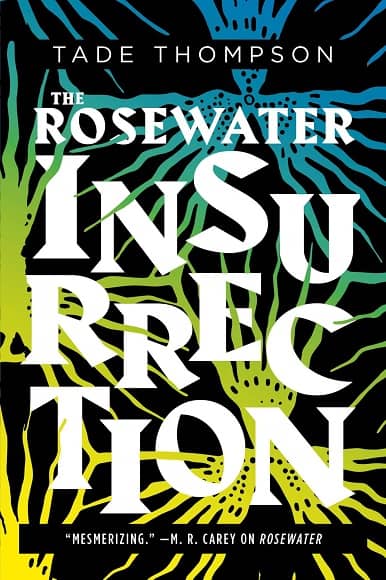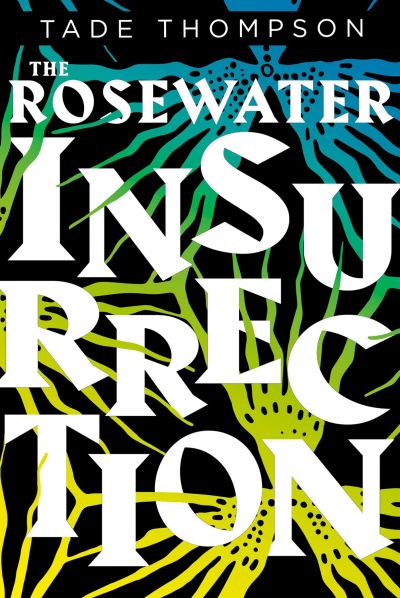


These insidious shifts are revealed - at the conclusion of Rosewater and the beginning of the second novel, Insurrection - to be a type of terraforming, preparing the world for the arrival of the actual alien species planning to colonize planet Earth. If you’ve read Rosewater, you also know that the alien named Wormwood nestled at the heart of Nigeria’s Rosewater city has been part of a centuries-long process of “seeding” Earth’s atmosphere with alien spores, forming a biological information network called the xenosphere and effecting almost imperceptible evolutionary changes in humans.

Thus postcolonial Nigerians (having survived such an apocalypse already at the hands of the British) successfully formed pockets of resistance or adapted to living with the invaders, while imperialist countries like Great Britain and the United States had less productive positioning and were quickly destroyed or driven into an isolationist retreat by the threat of alien invasion. In his trilogy’s Nommo Award–winning first book, Rosewater (2016), Thompson repeatedly suggests that human colonization prepares human reactions to alien invasion. Stacy Alaimo, a researcher and professor of environmental humanities, has suggested that in order “to understand the future, we need to understand the past, not just as context, but as the seeds of catastrophe.” In the Wormwood Trilogy’s concluding two novels, The Rosewater Insurrection (2019) and The Rosewater Redemption (2019), the seeds of colonial invasion, alien supposition, and systemic control planted in readers’ minds during the first novel sprout into deadly blooms. Then again, when a story engages the planetary disaster of the Anthropocene and histories of colonization, perhaps readers shouldn’t be able to shrug off a sense of bitterness.

The science fiction Wormwood Trilogy by British author Tade Thompson is aptly named - its engaging arc contains a bitter undercurrent that I find difficult to fully shake from my mind. It will refuse to leave your tongue even after you try to chase it away with sweeter flavors. The plant is enticing to smell and adamantly bitter to taste. THE WORMWOOD PLANT is ornamental and used as an ingredient in absinthe.


 0 kommentar(er)
0 kommentar(er)
